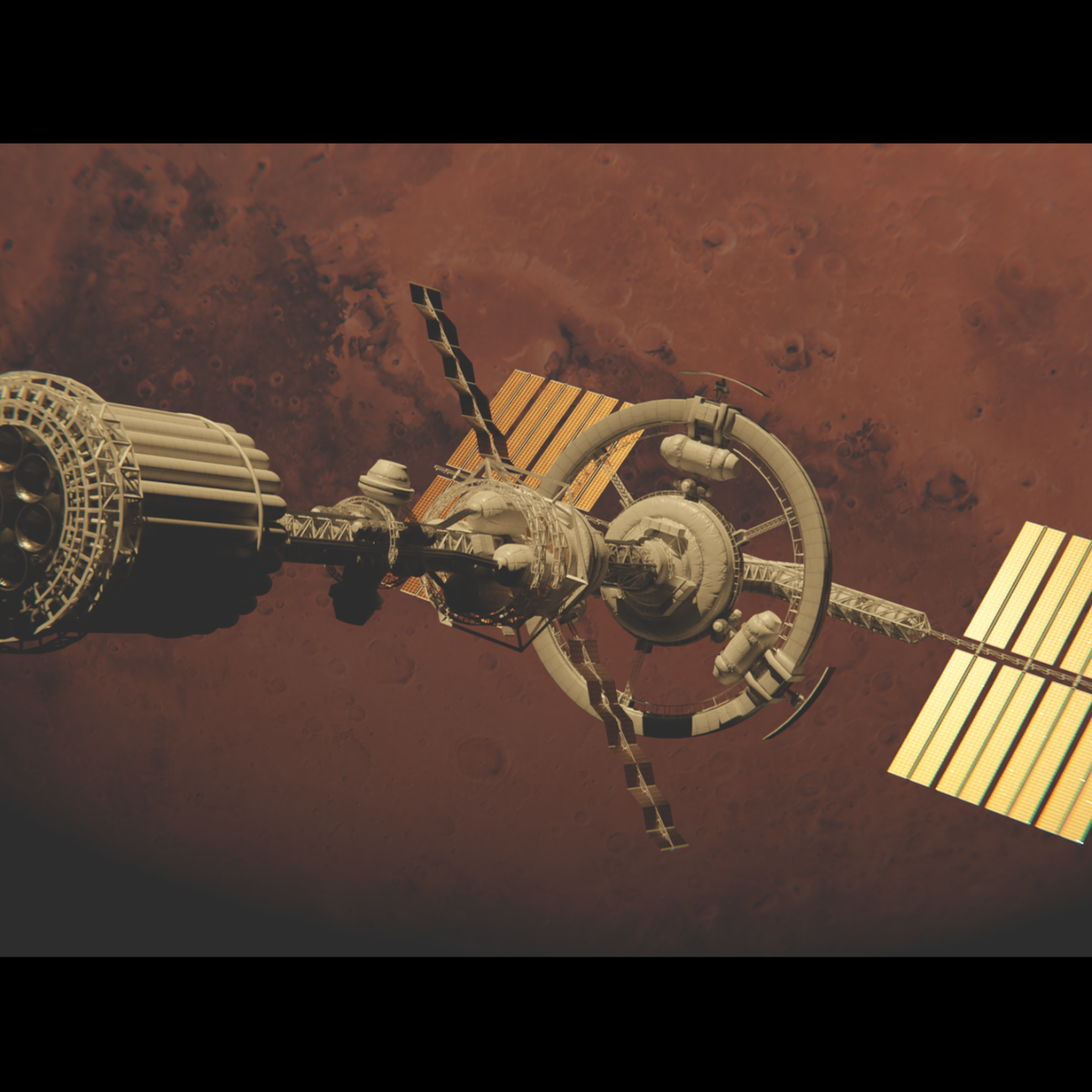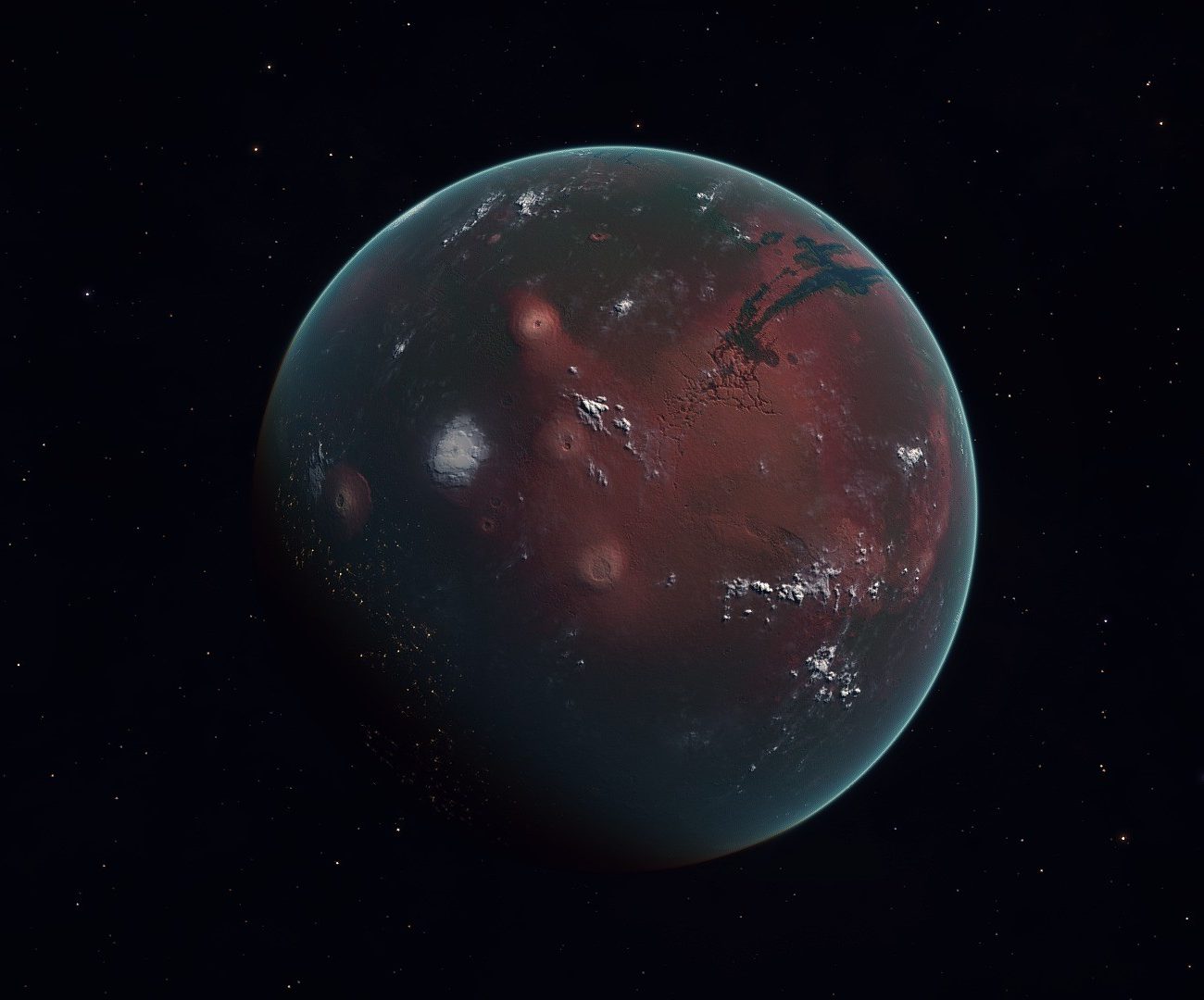FAQs
Frequently Asked Questions about Marscoin and Human Settlement of Mars

How many Marscoins are there? What is the total supply?
As of May 2021, there are a total of 35,934,831 Marscoin that has been mined. In 2024, the last Marscoin will have been mined bringing the total to ~40 million (39.9 - click here for a full list of decentralized top Marscoin addresses).
Where can I find the Marscoin Whitepaper?
For an in-depth paper regarding the specifics of a Martian economy run on cryptocurrency in general and Marscoin in particular, click here
How does Marscoin work?
Just like Bitcoin and Litecoin. Simply download the Marscoin wallet to get started. Mine Marscoin using your computer, send and receive Marscoin to others or buy Marscoin through an exchange. If you would like to learn more about the technology behind Marscoin, check out Bitcoin.com. You can also watch a great video about why a Mars settlement is so important here. Colonizing Mars.
What makes a cryptocurrency like Marscoin so special?
Most think of Bitcoin as nothing more than a currency, but the reality is that it’s much more than that. At its core, Bitcoin, Marscoin and other cryptocurrencies are a new technology that allows everyone around the world to come to a consensus on who owns what without the use of a centralized third party.
There are many different applications that can be built on top of this technology, and like Bitcoin, Marscoin would only be the first of many apps to come. When you forget about Bitcoin and just look at the technology, there are a large number of new possibilities that jump out at you. For example, if you can have a decentralized ledger that explains who owns which asset, then why do we need centralized stock exchanges? If we can have a global consensus on who owns which domain name or email address, then why do we need centralized versions of these services? If it’s possible to create a global marketplace where buyers and sellers can find each other in a decentralized manner, then why do we need to use eBay?
These are just a few of the possibilities that people are looking at right now when it comes to taking the technology behind Bitcoin and applying it to more than just payments.
When we make it to Mars there is a high probability that our economic and financial system will be built on a revolutionary frictionless and distributed wealth ledger protocol like Bitcoin. However, using Bitcoin directly on Mars will not work: Bitcoin depends on energy-demanding specialized hardware to process transactions. Also, Bitcoin’s confirmation delay of 10 minutes per block is too long for a young cryptocurrency on Mars – miners on Earth could interfere with their tremendous hashing speed and even if that does not pose a problem, waiting for block confirmations from distant Earth is even less desirable. Thus, transferring another cryptocurrency blockchain like Litecoin to Mars would be possible, but by creating a dedicated altcoin to that particular purpose we are able to initially boost the very non-profit organization that is organizing the installation of the first Martian settlement: Marscoin at once becomes the fuel to bootstrap the settlement and is designed to be optimized for a young Martian economy where power-consumption and frequent confirmations are ideal to support a new planetary financial system. For more information take a look at our roadmap.
When will Marscoin leave Earth?
Marscoin will be closly following the progress made by SpaceX, The Mars Society and other leading visionaries in space exploration. Marscoin could be officially forked and transfered to Mars at the time of the first manned departure or later in the settlement’s development. Depending on the popularity of Marscoin and the willingness of visionaries like Elon Musk and Dr. Zubrin in supporting the open source Marscoin community.
If Marscoin does get established on Mars, mining would continue on the red planet on a settlement sponsored server building the foundation for a developing Martian industry and economy. While initially limited in usefulness, Marscoin on Mars will quickly become the de-facto standard of value transfer for early settlers. Capital allocation, banking services and exchange of value will be fast and frictionless on Mars without the need of a complicated legacy banking system like on Earth.
No way! It’s impossible to build a base on Mars!
It is actually much easier for us today to go to Mars than it was to go to the moon in 1961. Please check out these great resources to get an idea of how far we have come and why building a base on Mars is a challenge our generation should seriously contemplate: A Case For Mars, The Plan to settle Mars and why we must, Mars as a goal for humanity.
How can this work?
“First they ignore you, then they laugh at you, then they fight you, then you win.” We know that Marscoin really stretches people’s imagination but Marscoin is a serious thought experiment. Lily Allen’s 100k Bitcoin invitation for a concert in 2009 would pay for a Falcon Heavy Rocket launch a mere 4 years later – and Bitcoin’s ‘wealth’ is concentrated in a far smaller group of people than Marscoin. At a time where Bitcoin itself is still compared to “email in 1991” and SpaceX’s attempts to organize Mars exploration privately receive harsh criticism, we know that many will think of Marscoin as a scam and not “the idea for facebook in 1991”.
However to us, the initial developers and space enthusiasts behind this project, Marscoin is a serious effort to boost space exploration privately.
Marscoin launch in January 2014 was open to the public. Since then, thousands of miners have helped spread the Marscoin network and mine 28M Marscoin (as of May 2018) of which the community donated 500k each to The Mars Society and Mars One. (The Mars Society later took ownership of all One Million of the initially donated Marscoin.) Marscoins are spread out much more fairly and equally than Bitcoin or Litecoin’s wealth. Marscoin is still in its infancy, though (launched mid January of 2014).
Even if, how do you know that Marscoin will be the currency?
If we assume that no central bank will start printing money on Mars anytime soon but the necessity to exchange value and assets on Mars will spring up relatively quickly it seems that an electronic currency like Bitcoin could fill the gap easily. As a consequence someone will convince the early settlement/base to adopt a variation of a cryptocurrency. This will probably not be Bitcoin itself, as the distance from Earth prevents connecting to it and the Bitcoin protocol requires too much power (a scarce commodity in the early settlement) for transaction verifications. Thus, a cryptocurreny like Marscoin will probably be the preferred choice. Like Bitcoin though, if enough people adopt Marscoin – including the early “Marstronauts” there will be a natural tendency to install the very currency that the early adopters and space enthusiasts have already invested in and so the most likely choice will be a continuation of Marscoin – on the red planet. This could lead to a similar network effect that makes Bitcoin spread and grow.


How will future Mars inhabitants use the currency?
The best way to find out is to actually experience it yourself! If you are new to cryptocurrencies, checkout coinbase.com or some other service that allows you to buy Bitcoin. Transfer some of them to your mobile phone or buy things online. You will see quickly how efficient, fast and secure cryptocurrencies are. Marscoin is no different. Checkout http://marscoin.org/exchanges/ where you can buy a few Marscoin to learn how it works. In approximately 2036 on Mars, the early settlers just need to run a small program on one of their computers (a so called “node”) that will the Marscoin network on Mars to be immediately functional. Now, anyone that runs his own private password protected copy of a Marscoin wallet on Mars can participate in transactions between individuals or groups of individuals.
What happens when Marscoin leaves planet Earth?
All your existing addresses and value stored will continue on Mars. The fact that there is only a limited amount of time before the Marscoin blockchain gets transfered will create a time-scarcity that should help fund the project and reward those first investors and visionaries who support the project and thus help fund a new branch of human civilization. For those who do not want their value to stay on Mars and increase over time, they can transfer their Marscoins at any time into any other cryptocurrency or fiat at one of the big exchanges.
Can an economy exist with so few people on the planet?
That is a really good point. It is pretty clear that in the very beginning, between the first few settlers we will see barter and voluntary sharing. However, soon thereafter, some form of trade will have to take place. Both the Mars Society and SpaceX are planning on sending a constant stream of settlers to Mars, so the size of the settlement(s) would grow continuously. Here is a great quote that makes a case for why trade will spring up quite naturally and quickly: “Love—more generally, the sharing of a common end—works well, but only for a limited range of problems. It is difficult to know very many people well enough to love them. Love can provide cooperation on complicated things among very small groups of people, such as families. It also works among large numbers of people for very simple ends—ends so simple that many different people can completely agree on them. But for a complicated end involving a large number of people—producing this book, for instance—love will not work. I cannot expect all the people whose cooperation I need—typesetters, editors, bookstore owners, loggers, pulpmill workers, and a thousand more—to know and love me well enough to want to publish this book for my sake…Nor can I expect them all to be people who want to read the book and who therefore are willing to help produce it. I fall back on the second method: trade. I contribute the time and effort to produce the manuscript. I get, in exchange … a satisfying boost to my ego, and a little money. The people who want to read the book get the book. In exchange, they give money. The publishing firm and its employees, the editors, give the time, effort, and skill necessary to coordinate the rest of us; they get money and reputation. Loggers, printers, and the like give their effort and skill and get money in return. Thousands of people, perhaps millions, cooperate in a single task, each seeking his own ends. So under private property the first method, sharing/barter, is used where it is workable. Where it is not, trade is used instead.” Source: http://www.daviddfriedman.com/The_Machinery_of_Freedom_.pdf
Are you guys fans of Elon Musk?
Who is not?!? And yes, we bought a lot of those Boring Company caps… Elon, if you read this, thanks for all your efforts for getting us to Mars. Forever grateful.
This is amazing! How can I help?
Join our developer team, spread the word, invest in Marscoin and just in general think of ways how you can help building a Martian economy here on Earth before the Marscoin infrastructure is transfered to the new settlement. You can also help by donating to organizations such as The Mars Society, SpaceX, The Mars Initiative and others
Is Marscoin affiliated with The Mars Society?
Several of us are Mars Society members in addition to working on Marscoin, but there is no official affiliation at this time. We have presented at the Mars Society convention in 2014 and 2017, and we are huge fans of the Mars Society, Dr. Robert Zubrin and his work such as the Mars Direct plan. We hope the Mars Society is successful in all of their efforts, including the analog research programs they run such as the Mars Desert Research Station, and the new MarsVR Program.
What is the address to see the Marscoin donation to the Mars Society?
You can see the official Mars Society Donation address via the Marscoin blockchain explorer: here
How do I mine Marscoins?
Download the Marscoin program or direct your dedicated miner to the Marscoin network. If you have mined Bitcoin and especially Litecoin in the past, you can apply the same rules to Marscoin mining. “Mining” is just a fancy word for “transaction verification”. Because this transaction verification happens in a decentralized neSeventeenrk, no bank is necessary. For the computing power submitted “miners” receive a reward. The issuance of Marscoin is algorithmically limited, like Bitcoin, and will reduce over time, allowing the currency to truly reflect the economy’s true value creation.

Open for Collaboration Proposals
Inviting thinkers, innovators, and partners for collaborative projects and proposals.
In 2013, we had a vision. We saw a future where Mars leveraged the transformative power of blockchains for finance, governance, and public/civic engagements. Our goal was to encapsulate this grand vision, ensuring that the pioneering spirit of such a future remained untainted by the risks of scams and frauds that often accompany emerging technologies. Throughout a decade-long journey, we’ve been fortunate to gather a community of volunteers, enthusiasts, scientists, researchers, and, quite possibly, the first Martians. Together, under a banner that promotes unity and shared purpose, we have made significant strides.
A milestone in our journey was the successful registration of the trademark “Marscoin” last year. This was more than a legal accomplishment; it was a declaration of our commitment to this vision and our community’s ideals. However, with this step comes a greater responsibility and a renewed invitation. We understand that the ambitious infrastructure required for Mars and blockchain integration cannot be built by us alone.
That’s why we are extending an open call for collaboration. If you have an innovative idea, a project that aligns with our mission, or a proposal that could benefit from the Marscoin brand, we want to hear from you. We’re looking for partners who share our excitement for developing the future infrastructure of blockchains and are eager to contribute to something truly groundbreaking.
Join us in this extraordinary endeavor. Your insights, creativity, and passion are what will propel us forward. Let’s work together to turn this bold vision into reality. If you’re inspired by the prospect of contributing to the Marscoin project, reach out. Let’s make history together.
Support the Mars Society
The Mars Society is a membership-driven non-profit organization that advocates the human and robotic exploration of Mars and the establishment of a permanent human presence on the Red Planet.
The Mars Society is the world’s largest and most influential space advocacy organization dedicated to the human exploration and settlement of the planet Mars. Established by Dr. Robert Zubrin and others in 1998, the group works to educate the public, the media and the government on the benefits of exploring Mars and creating a permanent human presence on the Red Planet. Our Founding Declaration describes our goals and our creed.
In order to accomplish our mission, the organization actively seeks to:
1. Organize public outreach with the aim of fostering a deep interest in Mars,
2. Promote broad international support for government-funded Mars research and exploration, and
3. Advocate the establishment of commercial space ventures that will help achieve Mars exploration and settlement.
